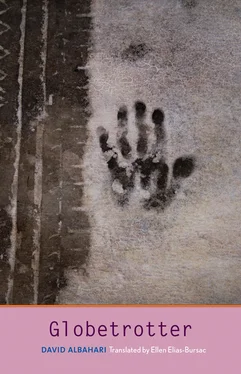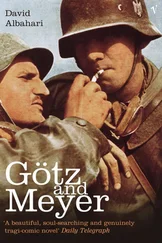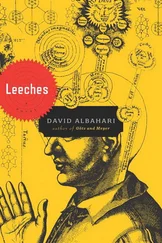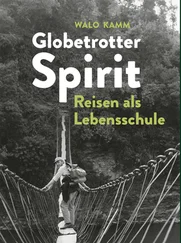None of that matters now, because no matter what was on his mind, it changes nothing. In life, unlike in art, there’s no way to go back to the beginning; there is no page to tear out or canvas to paint over. That didn’t occur to me just then; nothing occurred to me. When I realized that Ivan Matulić’s grandson, whether intentionally or not, was making straight for the edge of a cliff, I drew a blank. I gaped like a fish on dry land, though I was drenched, and I looked over at Daniel Atijas, who seemed to be moving quickly away, then at Ivan Matulić’s grandson, also moving away, though more slowly, but in his case, as I now know, velocity was moot. What happened next happened in an instant: a shriek tore from my throat at last; I hurtled, crouching like a sprinter, after Ivan Matulić’s grandson; Daniel Atijas stopped, turned, brought his right hand to his eyes as if sun, not rain, were preventing him from seeing, and then he, too, sprinted our way; Ivan Matulić’s grandson also turned, perhaps in response to the shriek or maybe because he wasn’t certain of his intentions; my foot splashed through a puddle, and the spray, as if in slow motion, rose up fountainlike around me and mingled with the rain; Ivan Matulić’s grandson lost his balance or maybe tripped on a rock protruding from the low-growing shrubs, which, a little later, I hopped over, but by then Ivan Matulić’s grandson had crashed to the ground and begun rolling and tumbling toward the precipice; I threw myself after him and managed to grab his left hand; I held on to it with my left, but when it slipped through my fingers, I lurched around and grabbed him with my right, meanwhile groping with my left for a support or something to grab; with my chin to the ground I saw Ivan Matulić’s grandson’s eyes, aghast, and when I turned and lowered my left cheek to the wet earth, I caught sight of Daniel Atijas, pumping his legs high as he ran toward us, his mouth open, no sound reaching us; again I looked at Ivan Matulić’s grandson; his body was mostly over the cliff edge by then, out of my sight; I should say something, I thought; and then I let him go.
Everything after that happened very fast. Time caught up later. First Daniel Atijas reached me, panting; he touched his face and repeated that this was impossible, though he never once said what. Later it turned out that we had not been alone on the peak, because several hikers approached us, most of them drawn, as one later said, by Daniel Atijas’s cries. One of the hikers had a cell phone and called the police. While we were waiting for them, the rain let up, the clouds dispersed, the sun came out. A woman peered over the cliff edge, but there was nothing, she said, to see, or rather, she said, she could see all sorts of things but no body. I was tired, my knees shivered but I didn’t want to sit down. It seemed inappropriate somehow, and besides the ground was wet. When the police got there, they brought in a special rescue team, a group of mountaineers, who, after I showed them the precise spot where it had all happened, found the body of Ivan Matulić’s grandson. While we waited for them to prepare everything necessary for lowering the stretcher, I spoke with two police officers. Really, I talked with only one; the other did nothing the whole time but nod as if approving my every word.
They also talked with Daniel Atijas, and he, I heard, confirmed what I’d said, remarking that even from a distance, even at a run, it was possible to see, he said, that I had poured every atom of strength into holding on to Ivan Matulić’s grandson before he plunged to his death. He hadn’t known then, he said, that this would end in death, of course, but the moment he realized it, when, he said, he saw our hands pulling apart, he could only regret that he hadn’t been three or four steps closer once he started running. Had he been closer, he said, this whole story would have had a different ending. The police officer thanked us and, seeing that the mountaineers had brought in the stretcher, asked if we could identify the victim. I refused, pleading distress, but Daniel Atijas followed the police officer, went to the stretcher, leaned over, and lifted the corner of the white sheet. He looked away. Yes, said Daniel Atijas, that’s him. Soon after that, if I am not mistaken, we parted ways. Daniel Atijas joined a group of hikers, I believe — among them was the woman who had peered over the cliff edge — and he went with them down to the foot of the mountain without noticing, or, perhaps, not wanting to notice, the small, secret signs hinting of my presence. I let them get ahead, then slowly, more slowly than I would ever walk on the prairie, I set out along the winding trail among the pines. When I neared the end, my hopes swelled that I might come across Daniel Atijas waiting for me at Saint Julian Road. From the start he had struck me as a person who makes good on his promises, even when he hasn’t sworn to them before witnesses.
There was, however, no one on the trail, and after a brief hesitation I went on toward the Centre. News always travels faster than people do, especially bad news, and none of the people I passed on my way passed me without commenting on the, in the words of the Toronto playwright, “pointless death,” which only enraged me all the more, because I doubt that any death can be said to have a point. I hurried further along among the buildings and was on my way to the studio, believing I could find a solitary passage there into another world, which, I confess, is only another name for the bottle of cognac I kept on the kitchen shelf. In the area between the small practice huts for musicians, right where the path ran that led to the roomier studios for writers and painters, stood two elks. They were still, their necks gently bowed, and they seemed to be listening to the strains of a cello, which, low and muted, reached them from one of the huts. I waved at them, thinking it might unnerve them and persuade them to back away, but they paid me not the slightest heed. To circumvent them I had to climb partway up a hill and then come down through the woods, and suddenly, as I pushed apart the bushes through which I was clambering, I felt a crushing exhaustion, so much so that I barely resisted lying down right there on the ground strewn with pine needles and leaves. If I had, I know I never would have gotten up again. I stepped over a fallen tree and returned to the path. There was only a short walk from there to my studio, but I had the impression that I would never get there or would fall asleep midstride and keep walking while asleep to the ends of the earth. At one point it seemed as if someone was walking behind me, but when I turned, I saw no one, elk or human.
The next minute someone seemed to be walking ahead of me, or lurking behind a bush by the path, but when I neared the spot, there was no one there, though there was a scrap of red cloth, flamelike, on a twig. I don’t know what time it was when I finally stepped into the studio, but by the time I left it, night had fallen. I drank some cognac, of that I’m certain, just as I am certain that I found no passage to another world. While I was drinking I studied the drawings again, sequencing them toward the greatest openness, making minor changes in only one or, perhaps, two places, adjusting the sequence. I picked up the phone several times, but each time, after a slight, or longer, hesitation, I set the receiver back in the cradle. I sensed that Daniel Atijas was not in his room, and even if he had been there, I thought, he probably wouldn’t have picked up the phone, but still, when I entered Lloyd Hall, I went first to his room and leaned an ear toward the door. No matter how hard I tried, however, I couldn’t hear a thing, and all I smelled was my own foul breath. When I returned to my room, I saw that a folded sheet of paper had been pushed under the door. I unfolded it and examined both sides, but there was nothing written on it. First I don’t hear, I thought, then I don’t see: is it time to check if I am even alive? Then I recalled stories and movies about messages in invisible ink and embarked on bold experiments with water, soap, shaving lotion, graphite powder, and other substances. None of these gave results, which, I thought, probably was the intention of the person who had slipped the sheet of paper between the foot of the door and the rug.
Читать дальше







![David Jagusson - Fesselspiele mit Meister David [Hardcore BDSM]](/books/486693/david-jagusson-fesselspiele-mit-meister-david-har-thumb.webp)




